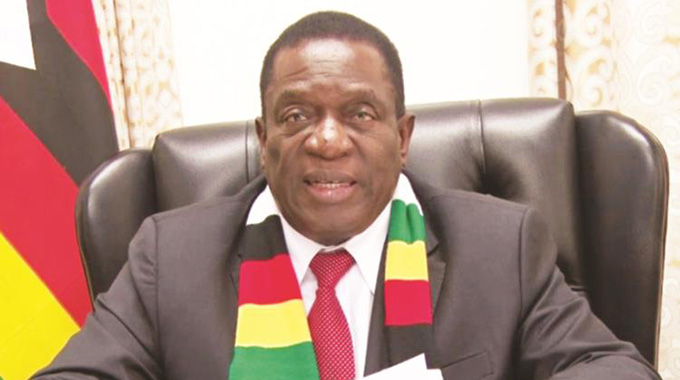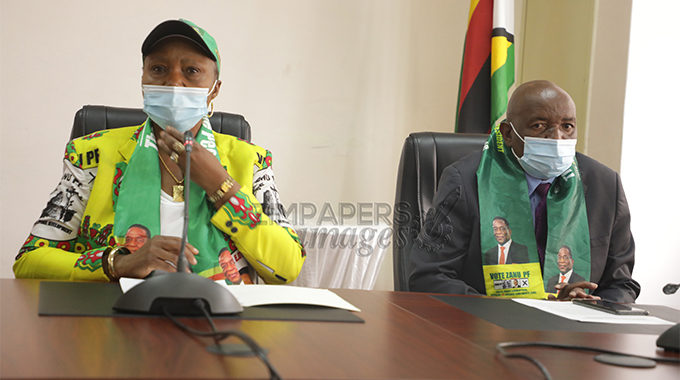Editorial Comment: Africans should put out African fires

In his address to the extraordinary AU summit on Sunday themed “Silencing the Guns”, President Mnangagwa outlined a multi-pronged approach to resolve conflict and deal with threats from gangs of terrorists or criminals.
His address was anchored on minimising the causes of conflict by continued development and reform in each country, and empowering the African Union (AU) and its regional bodies sufficiently so they could deal with threats, rather than relying on outsiders.
Even when they operate under a UN Security Council mandate, outsiders are likely to have their own agendas that disadvantage Africans.
One major potential problem, border wars, was eliminated right at the very beginning of the African Union, (AU) when it was still the Organisation of African Unity (OAU), with the decision to retain and maintain the colonial boundaries unless there was mutual agreement or, even better, countries united after the necessary democratic permissions were granted by the people.
This recognised the practical fact that almost all intra-African borders are illogical, drawn by politicians in Europe using a coloured pencil on a small-scale map to carve out “spheres of influence” for their empires.
With the exception of Idi Amin’s invasion of Tanzania, and the later battles between Eritrea and Ethiopia, all other border disputes have been solved by careful, and sometimes judicial, examination of the relevant colonial treaties.
This prevented internecine war while the long-term goal of a united continent was pursued.
That original OAU resolution, and present AU policy, explains AU support for an independent Sahrawi state. While the large French protectorate over most of Morocco and the tiny Spanish strip on the northern edge did agree to unite, a large majority of the people of the former large Spanish colony of Western Sahara to the south wanted their own state, and by AU rules, let alone UN rules, are entitled to that.
Spain had no business just handing it over to a neighbour without a plebiscite.
That still left, and leaves, internal conflicts driven too often by populists and similar sorts taking advantage of local perceptions of neglect of particular areas, and feelings of non-inclusion in national life.
Sometimes, even now, these are holdovers of peculiar and false racial theories held by colonial powers that deliberately accentuated minor differences, or cultural differences, as part of a policy of divide and rule and a policy of establishing colonies on the cheap.
So one plank of President Mnangagwa’s thoughtful address was to continue strengthening national institutions and processes to entrench democracy, constitutionalism, good governance, rule of law and the prevention of conflict and insecurity among people.
This is a political process in each country, to make everyone feel they belong, and belong by right of a birth certificate not by favour, that development is even, so every gain benefits all, and that local decisions can be taken by local people through a variety of ways.
Big states such as Nigeria and South Africa, find federal or semi-federal systems work best, while smaller states, such as Zimbabwe, look at a policy of devolution to local authority level. The end result is roughly the same.
But one function of the AU is to encourage these developments, help where it can, and build the consensus that “this is what we do in Africa, as Africans”.
Modern education and internet technologies are doing more to create overriding national identities than many realise, and perhaps no one should underestimate sport.
A national football team, or even a netball team, in a world cup competition can often do more to cement national consciousness than a convoy of politicians.
The second plank put forward by President Mnangagwa was to develop further the AU’s role in resolving conflicts that do arise, to the level where these are all sorted out in Africa by Africans.
That requires resources and organisation, not just words, and here the President was pressing for an enhancement of the AU’s capabilities.
There is already a base, the African Peace and Security Architecture and the revived Peace Fund.
There have been studies, by African experts. The AU now needs to build on this base and develop automatic and practical procedures to fund and implement what everyone basically agrees is needed.
The third area addressed by President Mnangagwa was the threat of terrorist groups and gangs of organised criminals.
Sometimes these can be managed internally, sometimes a hit country needs help, and even when a country can cope it still wants support, even if this is just cutting supplies to the terror group or extraditing criminals to face a court of law.
The President thought, and the recent history of Africa shows this can be effective, that regional blocs should take the lead in this area.
That is the neighbours rally round and help put out the fire.
To take an example. In the last decade there have been four self-affiliated ISIS groups operating in Nigeria, Mali, Somalia and now Mozambique.
These have little or nothing to do with Islam, or even with cultural differences within the countries. Their victims have been overwhelmingly Muslims and in all four countries Muslims are in government, sometimes right at the top in the presidency.
In West Africa there was support from the regional bloc. When Boko Haram exploded in north-east Nigeria, Chad, Cameroon and Niger committed troops, securing borders and helping Nigerian forces retake overrun territory.
The fact that a majority of Nigerian and allied troops must, by regional demographics, have been Muslims themselves meant that some of the complications that arise when outsiders are involved simply could not occur.
Mali also was assisted with an AU-sponsored force of neighbours, but regrettably also needed French aid, especially in the air. This is where a stronger regional response would have been better.
Somalia has a lot of other problems. But Kenya, as a neutral neighbour in the internal disputes, has done sterling work in the south. And here the weird colonial boundaries might have helped a bit.
Most Kenyan units, right down to company level, must have someone who grew up near the border and speaks the local language and may even have a relative over the line on the map and so can act as a liaison link.
Mozambique has been managing, so far, but the time may well come when a carefully thought out and well defined increase in support by Sadc might be needed, with AU agreement and backing of course.
This might be training and logistics, it might be garrison guards, it might be more. But better us than the Americans or the Russians or the Portuguese or some other outsider.
President Mnangagwa was right to insist that Africa should become self-reliant in security as in every other area.
We cannot expect the world to take us seriously unless we do resolve our own problems and put out our own fires.










Comments